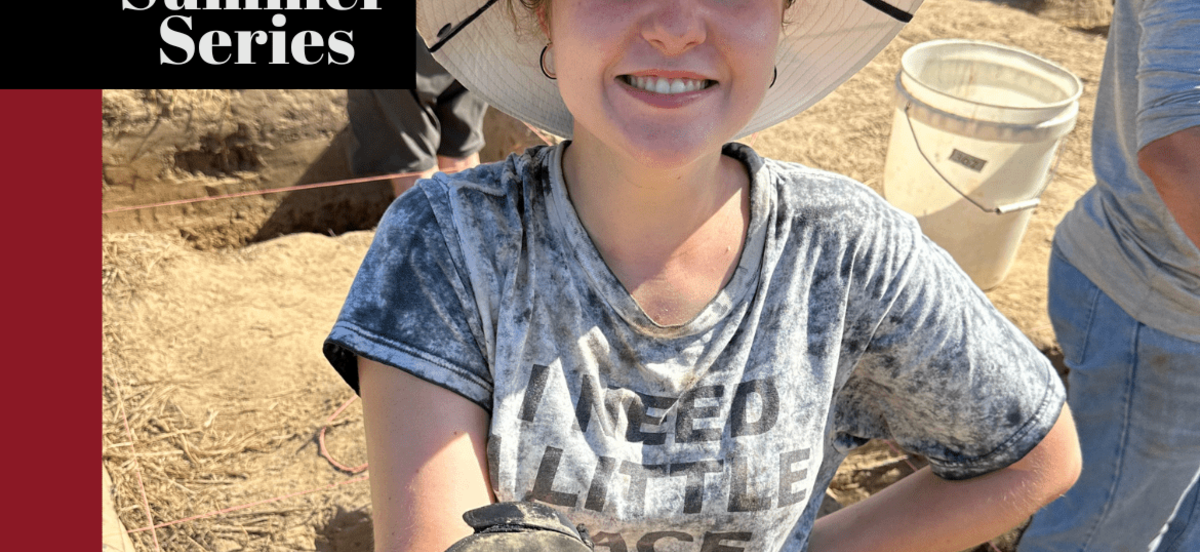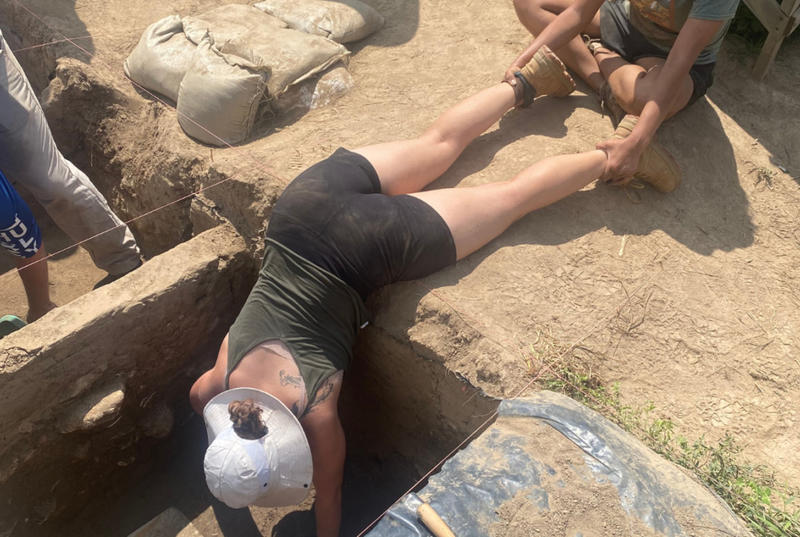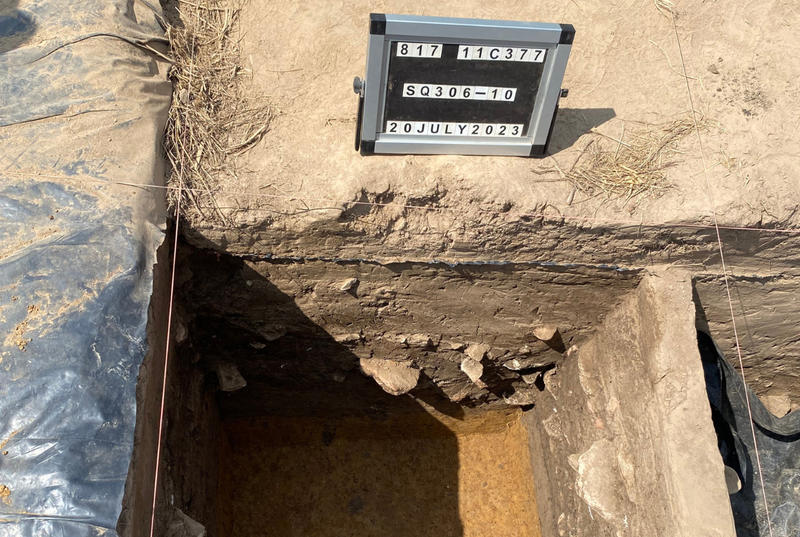Summer Series 2023: Center for American Archeology

Details
By Be Storie ’25
Funding Source: Liberal Arts in the Workplace
Hello all! My name is Be Storie, and I am a rising junior at Haverford College working towards an anthropology degree with minors in religion and archaeology. This summer, I was given the opportunity to intern with the Center for American Archaeology in Kampsville, Illinois. I have spent the last 4 weeks conducting field research and doing analysis in the lab.

The settlement that we are studying was occupied in the Middle-Late Woodland period, which falls just before the Mississipian period. This time period is especially significant because it may give us insight into trade relations with the nearby Cahokia civilization. By using radiocarbon and relative dating, the research team is in agreement that this site is at least 1000 years old. My main goal this summer is to excavate a large house basin that would have been occupied by many individuals. Thus far, we have identified burnt sandstone and limestone, charcoal, burnt fish, bird, and dear bones, burnt shells and scales, and ceramic pieces. Based on the stratigraphic layering of the unit, it is my understanding that this was a pit in which food remains were placed and later burned. Just after the burning of the pile, the area was abandoned.
Some of my responsibilities in the field include taking flotation samples to identify smaller macro botanicals, using trowels, shovels, and other equipment to excavate each 10 cm level, graphing the coordinates of larger artifacts, recognizing and recording soil descriptions and consistencies, screening soil, and graphing the various soil zones in the walls of my unit. Apart from these tasks, I am also responsible for keeping organized notes of everything that is done in my unit. Archaeology is an inherently destructive discipline, in that once a site is excavated, it can never be in its unexcavated state again. That is why it is crucial that every change we make to a unit is properly documented.

When I am not working in the field, I am helping to conduct laboratory work. Lab work typically includes a lot of data recording and transcription. Once artifacts are brought back from the field, is it our job to properly wash them, identify and tabulate them, and distribute them to our curator. Additionally, all of the work that we do eventually will get digitized so that the information we record can be preserved and shared more effectively. We also conduct flotations (which was actually developed by the CAA) to help us better understand the stratigraphic changes in soil composition and smaller components such as charcoal mottling and plant fibers.
I absolutely love working with the Center for American Archaeology. The team is dedicated to furthering public understanding and participation in real archaeology. One of my main goals in the archaeology sphere is to help make North American archaeology more accessible to the general public. I want people to get excited about the deep history of our nation’s past in order to better understand our place in it.
If you are interested in going into archaeology, I would highly recommend getting involved in a field school as soon as possible. Know that there are many ways to obtain funding for these programs both through the organizations and from Haverford. In the field, archaeology is very physical work- you will be out in the hot sun for many hours doing strenuous labor while fighting off pesky bugs. If you do not enjoy getting sweaty and dusty, I might recommend avoiding working in the field. However, if you are like me and love seeing your progress in tangible ways, please jump right in. Everyone here is excited about what we do and want to share it with others and get you excited about it.
I am looking forward to working with the team in the future to continue doing the important research that is necessary for understanding the Late Woodland period. There is so much still out there to discover, and I am eager to get my hands dirty.



